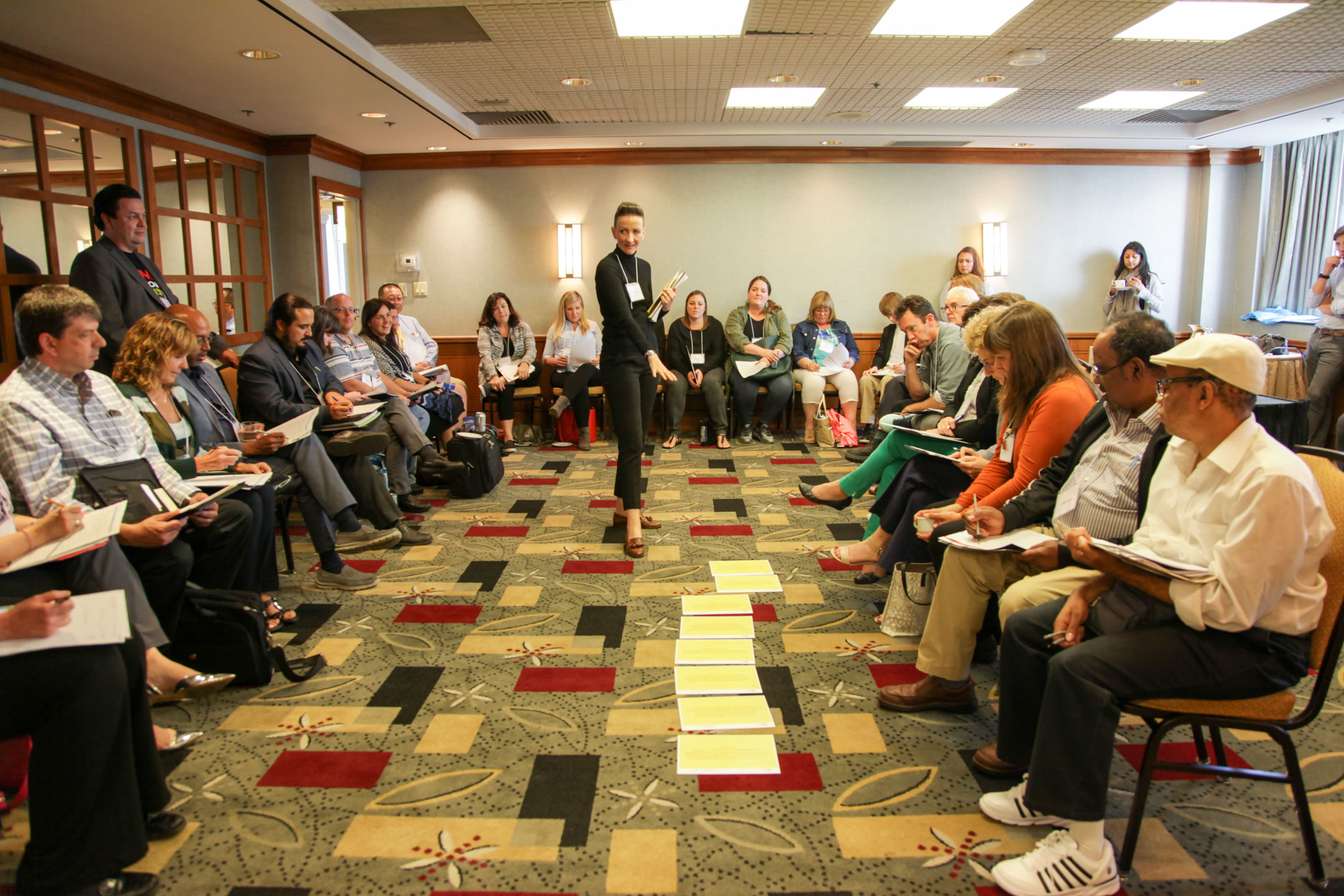Workshop process on the day
This section describes what happens in a standard JLA final priority setting workshop. The workshop is chaired by the JLA Adviser who has been supporting the PSP throughout. In addition, two other JLA Advisers will facilitate small group priority setting work on the day, so a total of three Advisers will be at the workshop. The meeting is held in person to give an opportunity for sharing of experiences and consensus building. However, adaptations may be required depending on the group of people needed at the meeting.
The JLA offers transparency and fairness as guiding principles for PSPs. JLA Advisers have an important role in managing differences in values and perspectives at the workshop.
At a PSP workshop, the JLA Adviser will set the scene, introduce the JLA and explain the ground rules for the day. This will include ways of working and behaviours on the day. Participants will be asked to work in partnership with each other, respect different opinions and maintain confidentiality.
The PSP lead, or another member of the Steering Group, will then provide background about the PSP itself. This is generally a short presentation, but should explain that the questions came from patients, carers and clinicians, how the questions were developed and why they are deemed unanswered.
Workshop phase 1: small group discussions
- In small groups (three groups of up to 10 people - equal mix of patients, carers and clinicians), each participant, in turn, contributes their views on the questions they feel are most important for research. These are noted down by the facilitator. Participants then talk about the questions they feel are least important in their opinion. Usually this involves focusing on each participant's top and bottom 3 questions.
- There the discussion is reviewed by the group to further explore areas of agreement or divergence and to clarify any aspects of the uncertainties.
Workshop phase 2: first round of small group ranking
- The same small groups begin to discuss the ranking of the uncertainties.
- The facilitator will lay out the cards in rough groups: those which were thought to be most important, those thought to be least important and those not mentioned or where there was divergence of views.
- Participants are then invited to start discussing the ordering of the cards, with a view to ranking all of them in order. It is important that all small groups achieve a ranked order of all the uncertainties.
- Participants are also encouraged to take account of any contextual information on the back of the uncertainty cards, such as interim voting results, to inform the discussion and acknowledge other perspectives in the prioritisation.
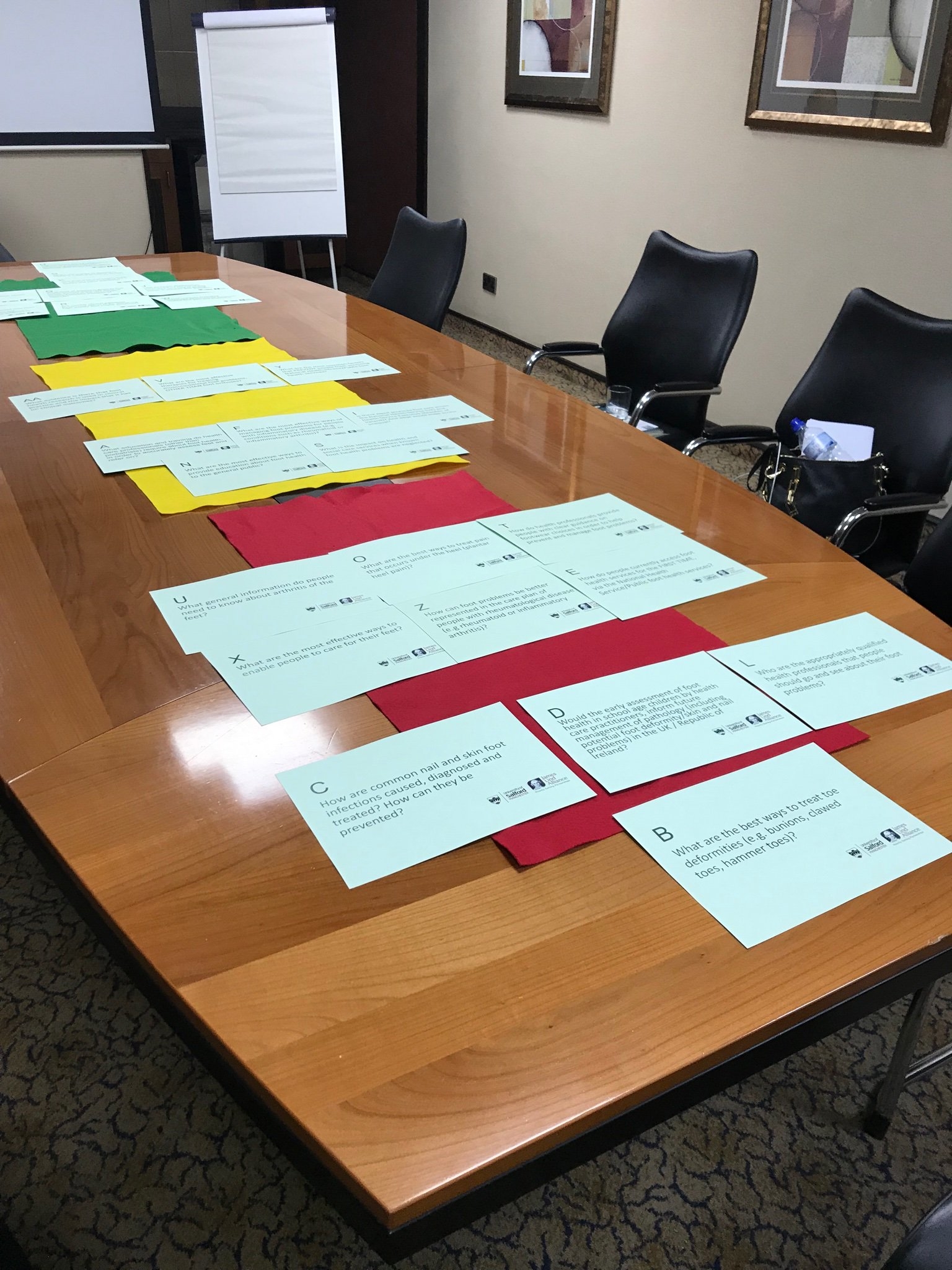
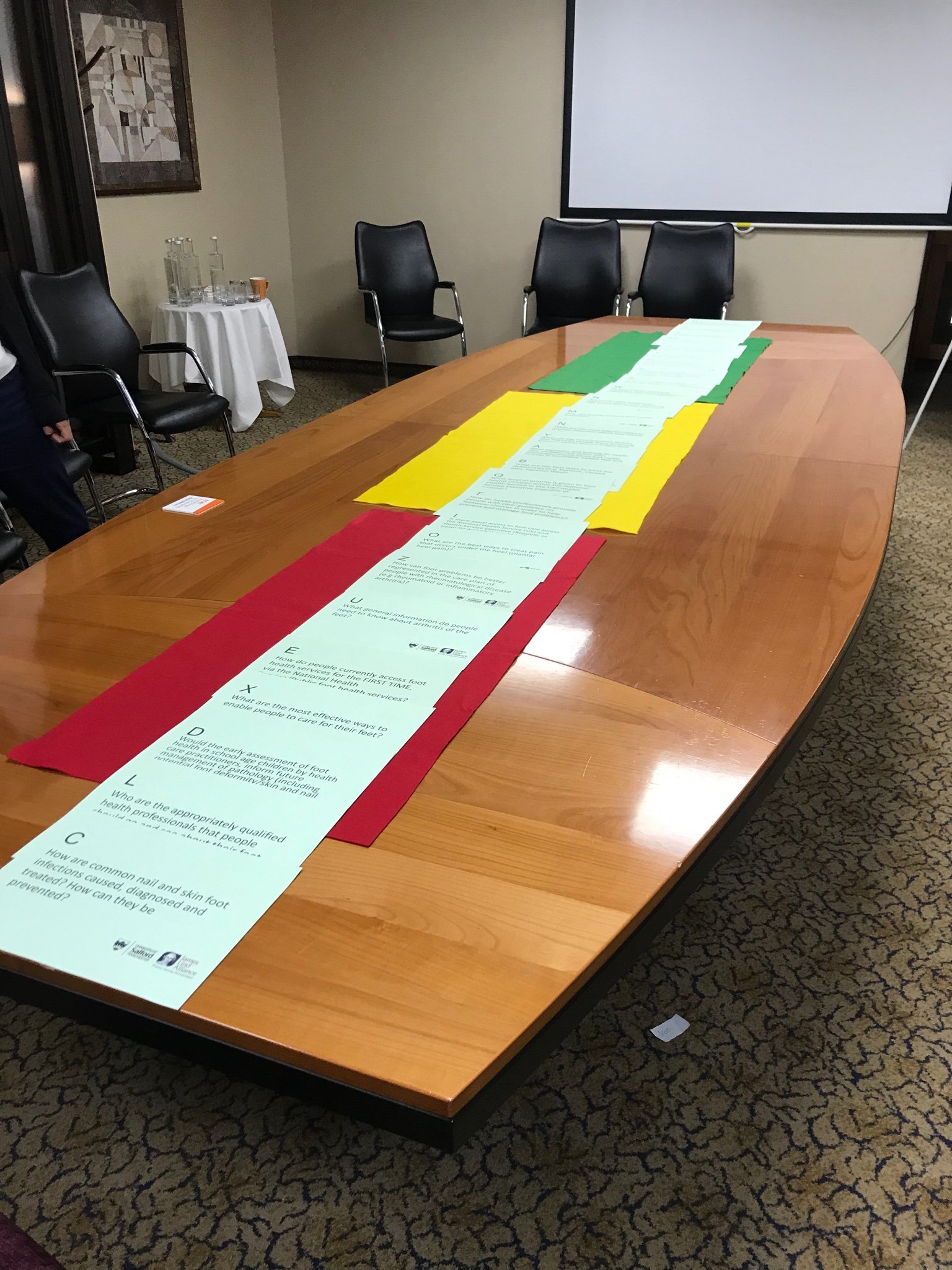
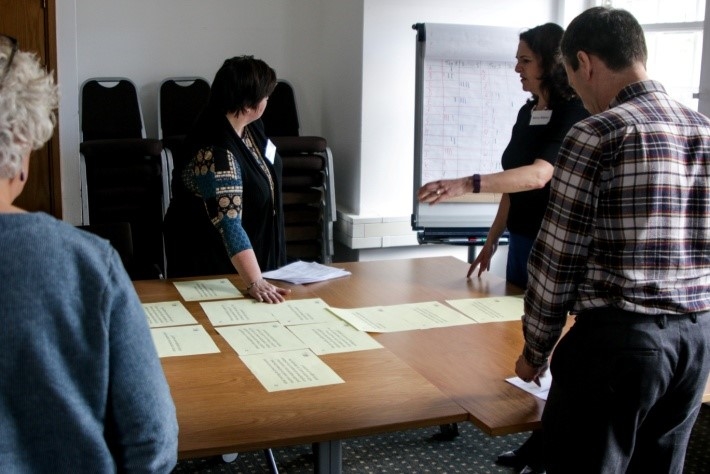
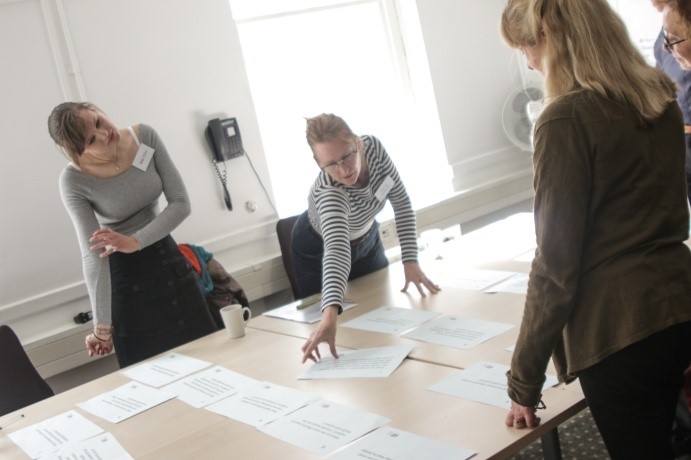
Workshop phase 3: whole group review
- Each group's ranking is entered into an Excel spreadsheet, and a first combined (aggregate) ranked list is achieved at this point.
- The JLA Adviser chairing the meeting will present an overview of the results, usually after a lunch break. Questions, comments and concerns can be discussed with the whole group present.
- Participants will then break into three new groups - with an equal balance of patients, carers and clinicians - to discuss and revise the combined ranked list.
Workshop phase 4: second round of small group ranking
- In the new groups, the facilitator should lay all the cards out in the aggregate order. The discussion should aim to focus on the upper half of the list. However, the full set of questions must be ranked by the end of this session.
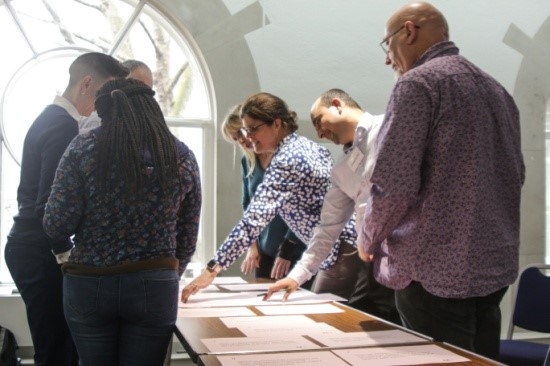
Workshop phase 5: final whole group review
- The small group scores are again entered into the Excel spreadsheet, and an aggregate ranking is presented to the whole group, usually with the cards laid out in order on a table or the floor.
- The ranking is discussed in the large group, with the aim of agreeing the Top 10 by the end of the discussion session.
- This discussion is chaired by the JLA Adviser to ensure no one group or individual dominates the decision making. If consensus cannot be reached by discussion, decisions may be put to a vote.
- The top 10 questions and the rank order of all of the questions at the workshop are agreed. The Steering Group should have already considered whether a public announcement of the Top 10 can be made immediately or whether an announcement will have more impact at a different time.
